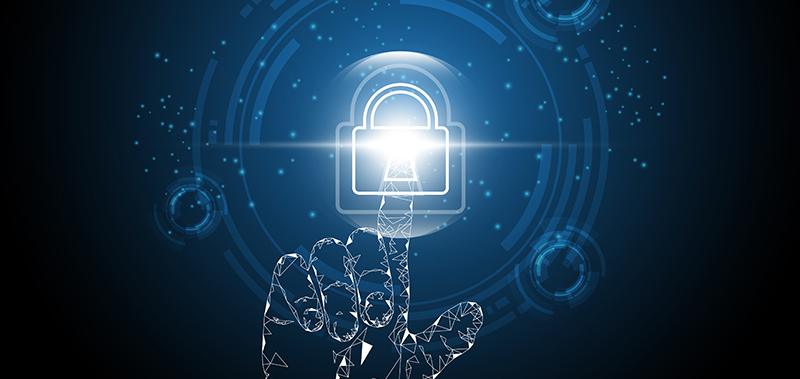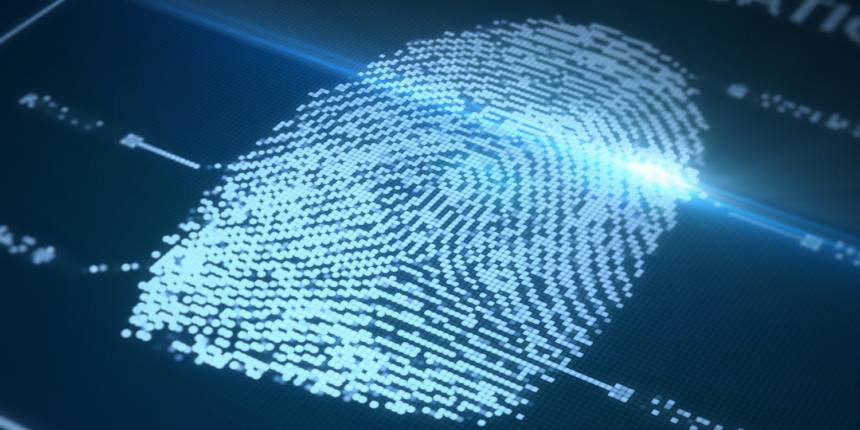One of the major challenges faced by many industries is identity theft. Especially, service industries like healthcare and transportation industry face the problem of identify thefts and identity threats. For example, in healthcare industry, a fake doctor can use a fake identity to treat patients. And, s/he may even experiment illegal drugs on the patient. Furthermore, identifying the identity of a doctor traditionally takes a lot of time. Also, it goes through a lot of legal process. However, this issue can be eliminated with blockchain. Blockchain identity management solutions include high encryption of data that also provides authenticate evidence of the stored data.
With the help of authenticate evidence provided, a user can verify the credibility and proof of identify of the service provider. Top of it, every digital ID using blockchain has a unique key. And, this key is the only way to use and access data. This reduces identity hack and identity threats because, without this unique all data is highly encrypted.
Why Blockchain Is Needed In Identity Management?

Traditionally in any industry, all data and information are stored in a centralized server or centralized system. This centralized server gives accessibility and permissions only to the necessary personnel. These personnel mostly comprise only of the higher management and administrative people in the industry. This single location of data and information storage leads to many vulnerable security hacks and security threats if the centralized server does not have appropriate security protocols.
Blockchain eliminates this problem. Blockchain is a decentralized platform. And, there is no single authority or central authority monitoring over the stored data. Thus, all parties involved in an operation has access to the stored data with enhanced transparency. This privacy and security features of blockchain demonstrate potential promises that it can keep up with in digital identity management.
Promises of Blockchain in Digital Identity Management
These promises include storing identity in secured database and displaying identity with proof only to people with unique identification key, etc.
Using the node system
There are two kinds of nodes that blockchain offers, full node and master node. So, first what is this node? In blockchain, a node is considered to be a computer system that operates using blockchain platform. This computer system can send and receive notifications.
How can this node help in digital identity management?
With blockchain nodes, a user can identify the identity of another user democratically without any complicated process and with a enhanced hassle-free authentication service. The person having access to the node can manually provide permission for access to identity and data for verification.
Using Full node
Full node is a computer system that provides, maintains and manages a complete copy of the data and information stored in blockchain. Also, it automatically updates the blockchain system with new entries and confirmations in real-time.
Using Master node
Master node is a computer system that provides users with the ability to govern and make efficient budgetary plans. This system provides a complete copy of the data and information stored in the blockchain system along with additional data such transactions that are pending, history and records of transactions, etc. Hence, this proves to be an efficient method of validating identities and all operations that take place.
Blockchain And its Promise To Digital Identity Management By IBM

Using blockchain and its decentralized potential, IBM have been empowering and enhancing their identity management protocols in all their operations. IBM has become a part of the Decentralized Identity Foundation (DIF). Being a part of this foundation, IBM has been helping the global collaboration in maintaining identities over a secured channel with encryption keys. Also, they have been trying to deal with missing identities when they come across circumstances of fake identity or missing identity.
IBM has been helping their clients and their own businesses by providing identity solutions with the help of blockchain. With the help of blockchain and being a part of the World Wide Web Consortium (W3C), IBM has been securing their data and important credentials.
Perils of Blockchain in Digital Identity Management
Yes, as promising as blockchain might seem in digital identity management, blockchain also has some drawbacks. These drawbacks necessarily do not pin point at challenges faced by blockchain in digital identity management. But, rather there are some general drawbacks of blockchain that might affect digital identity management.
Environmental cost of blockchain
Blockchain is a decentralized platform. And, it highly relies on encryption methods to store and save data regarding identity management and identity security protocols. Further, these encryptions require developing complex algorithms and installing lots of environmental variables. This means, development of the environmental infrastructure to efficiently use blockchain in digital identity management involves additional costs.
Blockchain is new and is still exploring its regulatory standards
Different industries have different requirements. And, blockchain has to come up with rules and regulatory standards that all industries follow as a whole. If that’s not the case, blockchain development technology needs to come up with specific rules and regulations for each industry. However, it complicates operations and increases the cost of deploying blockchain even more. Also, it may take more time for the regulations of blockchain to become standardized. Hence, deployment of blockchain might sounds a little risk in terms of cost and regulations.
Parting thoughts :
There are interesting projects have already starting using blockchain for digital identity management. Some of these projects are CIVIC, uPort, etc. Civic uses digital ID to tag every user and provide necessary authentication. Whereas, uPort focuses more on identity management through blockchain smart contracts for mobile device applications. Smart contracts are electronic form of maintain contracts digitally. With blockchain, the issues faced in standardizing identity verification protocols have become easier without any demographic limitations too.




